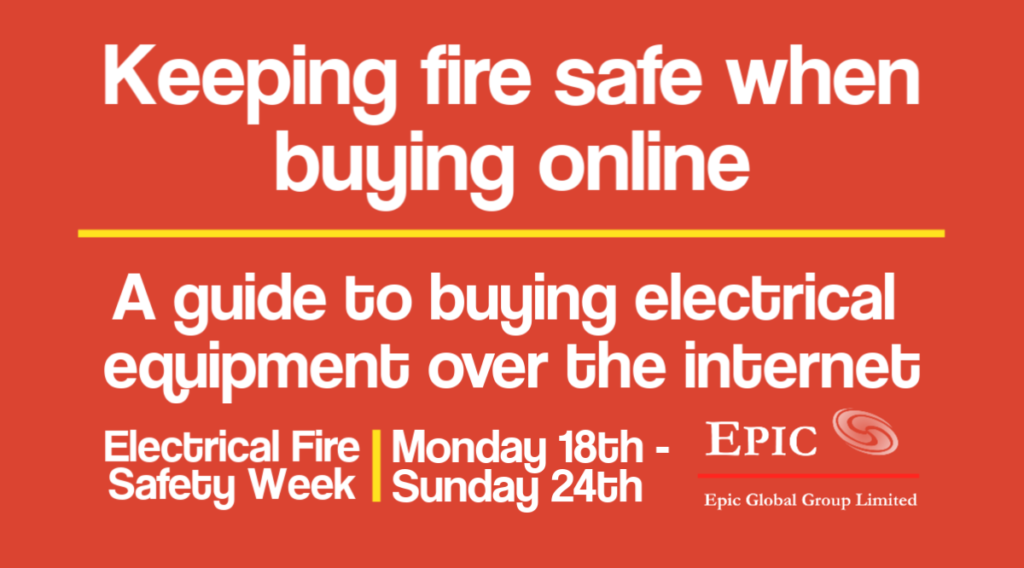How to stay fire safe when buying online
Posted by harvey in Uncategorized @US on February 25, 2020


Buying electrical goods online, either directly from the producer or through third-party sites, such as eBay or Amazon, can save you a fortune on the recommended retail price (RRP) of an item. However, criminals often use the anonymity provided by the Internet to sell substandard and counterfeit goods.
An initial investigation by Electrical Safety First in 2018 discovered that 30% of counterfeit and dangerous products purchased were done so online. Following on from this, a number of marketplaces signed a Memorandum of Understanding in the EU, committing them to removing dangerous products listed on their site. Amazon also launched “Project Zero,” which gives brands the power to remove counterfeit listings from its site. The best way to stay safe online is to follow this advice…
- If you are buying online, buy from a retailer you trust, either directly from the manufacturer’s website or a trusted High Street name—that way, if something goes wrong, you can return the product for repair or a refund.
- Don’t trust the pictures. Online shoppers are being misled by imagery taken from official product sites, fake official safety marks and believable pricing—items can even be priced just a few pounds below the recommended retail value to avoid arousing suspicion.
- Buying fake electrical products is particularly risky since they often contain faulty parts that can overheat and catch fire or deliver a fatal electric shock. While many items appear sophisticated on the outside, they lack essential safety components inside. If in doubt, leave it out.
- If a bargain seems too good to be true, it probably is.
- The “Home Electrical Safety Check” app can guide householders through visual checks (www.electricalsafetyfirst.org.uk/visualchecks).
Like we said, spotting fake and counterfeit electrical products isn’t easy. You can help to protect yourself by following these guidelines when using any electrical equipment…
• Keep combustible materials away from sources of heat
This includes not storing coats or flammable chemicals close to where your electrical intake equipment is held, for example in a closet.
• Don’t overload power outlets
An extension cord or adapter will have a limit to how many amps it can take, so to help reduce the risk of fire, be careful not to overload them. Try to keep to one plug per socket. Use Electrical Safety First’s online “Socket Overload Calculator” to make sure that you are not overloading the sockets in your home. www.electricalsafetyfirst.org.uk/overloadingsockets
• Keep electrical appliances clean and in good working order
Look out for fuses that blow, circuit-breakers that trip for no obvious reason, and flickering lights to prevent appliances triggering a fire.
• Regularly check for frayed or worn cables and wires
Check to see if the cable is fastened securely to the plug and check the socket for scorch marks. You should always carry out these checks before you use an appliance.
• Switch off appliances at the socket when not in use
This helps to reduce the risk of fire. Switch off appliances when you go to bed or when you go out unless they are designed to be left on, like freezers.
• Buy your electrical chargers from a reputable source
Many imported chargers do not satisfy UK safety regulations and can cause serious electric shock, injury, or fire
• Call Epic Global Group to arrange an Electrical safety test
We can provide you with a full safety test on your home electrics. This includes an inspection of your intake equipment, household wiring, and advice on any safety precautions that you may need to take to protect your home and your family.


Leave a comment
You must be logged in to post a comment.